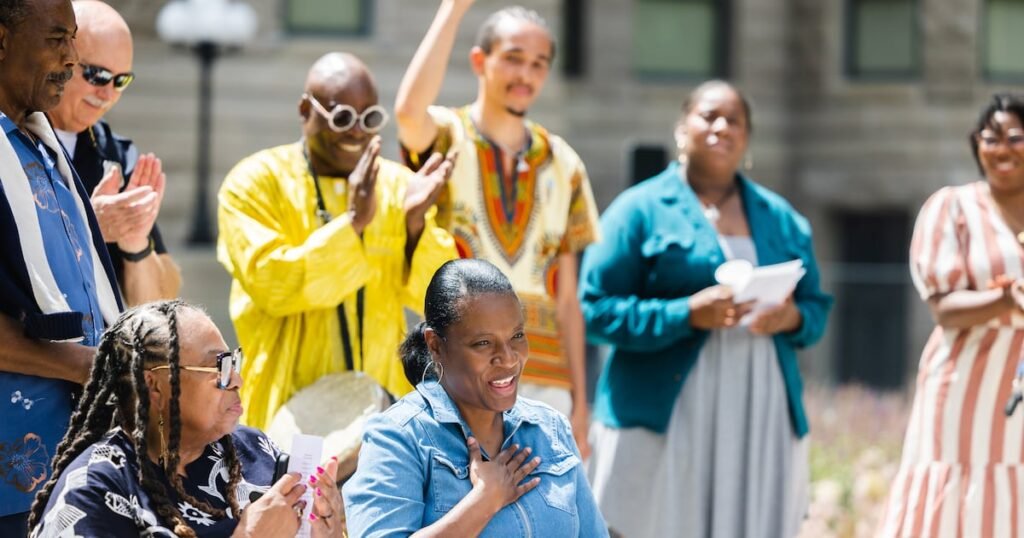Officially, Utah Governor Spencer Cox did nothing wrong when he called a special session of the state Legislature at 4 p.m. on June 19. After all, the state was celebrating Juneteenth, a federal holiday marking the end of slavery in the United States, on Monday.
Privately, though, the decision to convene the Legislature on June 19 seems a bit out of touch and unorthodox for a governor who declared June a bridge month just a few weeks ago. It’s not quite the same as convening lawmakers on the Fourth of July, or Christmas Day, but it may have been a bit insensitive when much of the nation is celebrating that important day.
The Salt Lake City chapter of the NAACP responded harshly, issuing a statement calling “Shame on Governor Cox” and accusing the governor of orchestrating a “political campaign stunt.”
That seems too harsh, and more likely it was just an unfortunate error born out of a calendar that marked Juneteenth on a Monday and a mindset that was still unfamiliar with the anniversary that finally became law in 2021.
That’s a problem in itself: Three years ago, a Gallup poll found that 62% of Americans had little to no knowledge of Juneteenth and the day’s significance. Presumably, that number is lower now, but the fragmented nature of various observances across the country means we’re nowhere near seeing Juneteenth as a second Independence Day, as it has long been perceived to be in African-American communities.
Juneteenth originated in Texas and has been an official state holiday since 1980. It celebrates the day when slaves in Galveston, Texas, finally found out they were free, about two and a half years after President Abraham Lincoln signed the Emancipation Proclamation. In recent years, Americans have quarreled over other holidays, like Columbus Day and Presidents Day, but Juneteenth seems like one we can all get behind.
Slavery, as it has been practiced throughout the history of the United States and other cultures, is one of the greatest shames of humanity, and celebrating the end of slavery on this continent is the right thing to do, regardless of where our ancestors stood on the matter, just like how Memorial Day is celebrated differently in the South and the Northeast (having grown up in a Southern state that still celebrates Confederate Memorial Day, I was shocked when I moved to New England nearly 20 years ago to learn that Memorial Day was such a big deal, because for a long time it wasn’t celebrated in the Deep South).
Ironically, it was Governor Cox who signed legislation making Juneteenth National Freedom Day a state holiday in Utah in March 2022. The problem is, due to a twist in the schedule intended to give workers a three-day weekend, it will only be celebrated on June 19th if that date happens to fall on a Monday.
Long weekends are great for everyone, but they can also lead to unexpected consequences, like what happened this week.
For example, Thanksgiving falls on a different date every year and nobody cares, but Juneteenth falls on a different date every year. teeth It is tied to a specific date. And for many, it is very significant that Juneteenth falls on June 19th. If workers start to see it as a day associated with a long weekend, there is a danger that it will lose its meaning with beach trips and barbecues. So for many, Memorial Day has become the “unofficial start of summer” rather than a day to honor veterans and those who died in combat.
Also, for example, when deciding on a day to convene a rebellious Congress, June 19th is probably not the best day, no matter what state holiday it is, because family events are likely to overlap with federal holidays and not with days when state offices happen to be closed.
We attempted to reach the governor for comment, but his office was closed today in observance of Juneteenth.
Should the state of Utah reconsider its policy and make June 19 a Juneteenth holiday for state employees? No matter how well-intentioned the original decision may have been, there are arguments in favor of it.
At the very least, we all need to recognize the importance of Juneteenth — for all Americans, but especially for Black Americans who waited too long for the news in Galveston, and waited too long for Juneteenth to be officially recognized — and schedule things accordingly. Or, better yet, don’t schedule them.

